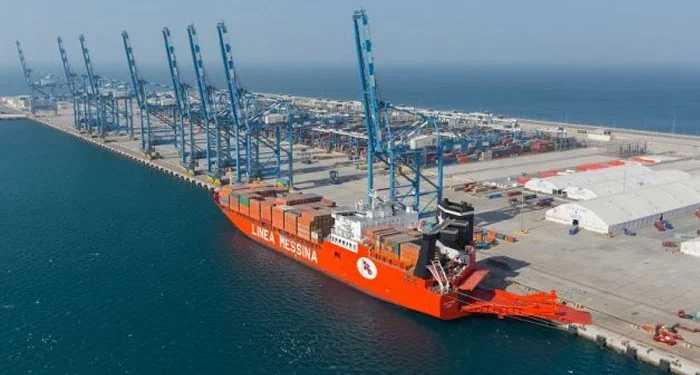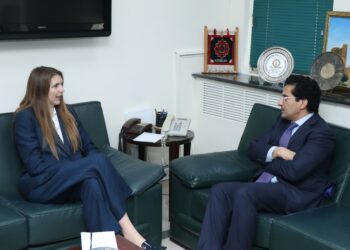ISLAMABAD: The government is unlikely to allow international arbitration to resolve a dispute between the Port Qasim Authority (PQA) and Pakistan International Bulk Terminal (PIBT)/Reko Diq Mining Company (RDMC) under the proposed Supplemental Implementation Agreement (SIA) and Side Letter, as all concerned parties are local, Newzshewz has reliably learnt.
PQA, a statutory authority established under the Port Qasim Authority Act, 1973, falls within the definition of a “procuring agency” under Rule 2(j) of the Public Procurement Regulatory Authority (PPRA) Ordinance, 2002, making it subject to the rules framed thereunder. “Public procurement” under Section 2(l) of the Ordinance covers acquisitions financed wholly or partly from public funds, unless exempted by the federal government.
The concession granted to PIBT for establishing and operating a terminal at Port Qasim to handle coal, clinker, and cement was awarded through competitive bidding, qualifying it as “public procurement.” Accordingly, PQA complied with all relevant PPRA rules. The Economic Coordination Committee (ECC) had approved the project on a Build-Operate-Transfer (BOT) basis in October 2010, with no government funding or guarantees.
The proposed inclusion of new commodities—such as copper, gold, and other minerals—by amending the existing Implementation Agreement (IA) would typically require a new competitive bidding process, since it involves a commercial transaction between a procuring agency and a private party, subject to PPRA rules.
The Reko Diq Mining Project, one of the world’s largest undeveloped copper-gold deposits, is jointly owned by Barrick (50%), three federal state-owned enterprises (25%), and the Government of Balochistan (25%)—of which 15% is fully funded and 10% is free carried. The project has been declared a “qualified investment” under the Foreign Investment (Promotion & Protection) Act, 2022, and is expected to bring Pakistan’s largest-ever foreign direct investment (FDI), generating major economic and social benefits for the country and Balochistan.
Due to the lack of export infrastructure at Gwadar Port, RDMC intends to export copper-gold concentrate and other minerals through PIBT at Port Qasim as an interim arrangement. Following directions from the Special Investment Facilitation Council (SIFC), the Ministry of Energy (Petroleum Division) requested the Ministry of Maritime Affairs to seek a PPRA exemption from competitive bidding for amending the existing IA.
Subsequently, PQA requested an exemption under Rules 12 and 20 of the Public Procurement Rules, 2004, and Section 21 of the PPRA Ordinance, 2002. The PPRA Board and Cabinet later approved this exemption—allowing PQA to negotiate terms with PIBT for the export of copper-gold and related commodities on a non-exclusive basis, provided government interests, due diligence, transparency, fairness, accountability, and value for money were ensured.
Following the Cabinet’s approval in May 2025, PQA initiated negotiations with PIBT (in association with RDMC). PIBT submitted technical and financial proposals for constructing additional terminal facilities to handle and export the new cargo. A draft Supplemental Implementation Agreement (SIA) and a Side Letter—allowing PQA to consent to PIBT’s sublease and step-in rights to RDMC in case of default—were prepared.
The only unresolved issue between PQA and PIBT/RDMC relates to the dispute resolution mechanism (Articles 16.2 and 16.3 of the draft SIA and Clause 4(e) of the Side Letter). PQA insists that arbitration should be conducted under Pakistani law in Karachi, as both parties are local. Conversely, PIBT and RDMC propose arbitration under the London Court of International Arbitration (LCIA) rules in London, UK.
The PQA Board, while approving the draft SIA and Side Letter on September 18, 2025, recommended retaining domestic arbitration under Pakistani law, citing conformity with the existing framework and the local nature of the contracting parties.
The Ministry of Law and Justice vetted the drafts from a legal perspective and raised no objections. However, the Cabinet Division returned the summary, seeking the Attorney General’s opinion on the arbitration clause.
The Attorney General of Pakistan subsequently advised that, subject to procedural formalities, there was no objection to Article 16 of the SIA—provided that any reference to “successors, sub-licensees, or assignees” is limited to RDMC and related entities, excluding other unrelated local parties.
In light of these developments, the Ministry of Maritime Affairs has requested the ECC to approve the draft SIA, Side Letter, and the proposed dispute resolution mechanism for final decision.
Ends
Islamabad, London explore enhanced cooperation in energy and mineral sector
ISLAMABAD: Federal Minister for Petroleum, Ali Pervaiz Malik, held a meeting with the British High Commissioner to Pakistan, Jane Marriott,...
Read more














